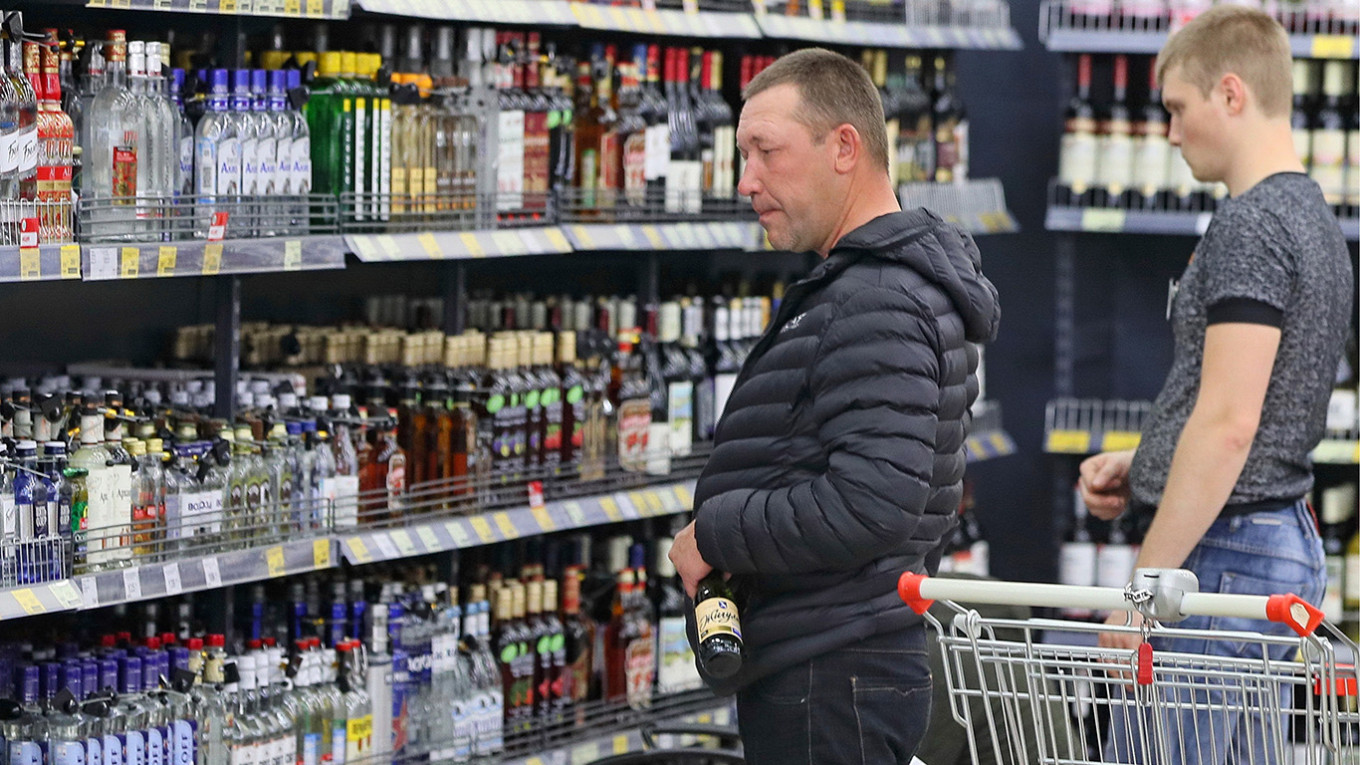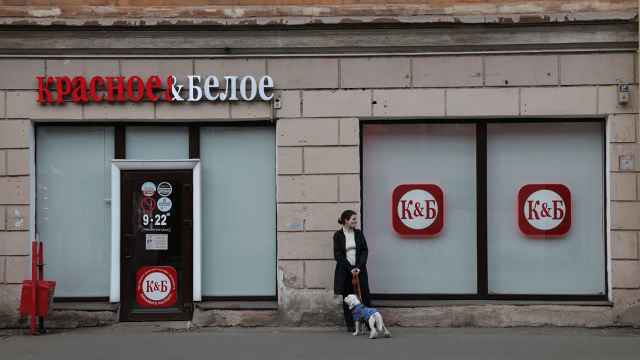Governors from at least four regions in Russia’s Far East announced plans on Thursday to limit alcohol sales and tighten measures against alcohol abuse, joining a growing number of regions where authorities are undertaking restrictive steps to curb the consumption of alcohol.
The proposals, discussed during the Eastern Economic Forum in Vladivostok, include increasing the minimum distance between liquor stores and residential buildings, reducing the number of stores and cracking down on illegal sales in venues operating out of apartments.
Aysen Nikolayev, head of the vast republic of Sakha (Yakutia), lamented the lax enforcement of existing rules, calling it Russia’s “biggest problem.”
“We pass wonderful laws, but unfortunately, their enforcement always leaves much to be desired,” Nikolayev told the RBC business news outlet. “Our main task now is to consistently destroy all illegal cafes or supposedly round-the-clock catering outlets that sell alcohol in residential buildings.”
The governors of the Amur and Magadan regions both emphasized the need to remove alcohol from “within walking distance” of homes. Amur region Governor Vasily Orlov said officials in his administration were closely following the success of policies in other regions where authorities have introduced limits on how close liquor stores can be located to residential neighborhoods and public buildings, such as schools and hospitals.
In the far-flung Kamchatka region, known for its rugged wilderness and volcanoes, Governor Vladimir Solodov said his administration planned to ban the sale of alcohol at establishments that have been set up in converted residential spaces.
Their moves follow a more aggressive campaign against alcohol consumption that is already underway in regions like northwestern Russia’s Vologda and the city of St. Petersburg.
In Vologda, authorities have restricted weekday alcohol sales to just two hours a day. Its governor, who says he is fighting what he calls “alcohol terrorism,” claimed that more than half of the region’s 610 liquor stores have been forced to shut down since January.
Meanwhile, St. Petersburg and the surrounding Leningrad region implemented new bans starting Sept. 1, prohibiting alcohol sales in dining venues and stores located in apartment buildings between 10 p.m. and 11 a.m.
While federal law already bans sales from 11 p.m. to 8 a.m., Russian regions are allowed to enact even stricter rules.
A Message from The Moscow Times:
Dear readers,
We are facing unprecedented challenges. Russia's Prosecutor General's Office has designated The Moscow Times as an "undesirable" organization, criminalizing our work and putting our staff at risk of prosecution. This follows our earlier unjust labeling as a "foreign agent."
These actions are direct attempts to silence independent journalism in Russia. The authorities claim our work "discredits the decisions of the Russian leadership." We see things differently: we strive to provide accurate, unbiased reporting on Russia.
We, the journalists of The Moscow Times, refuse to be silenced. But to continue our work, we need your help.
Your support, no matter how small, makes a world of difference. If you can, please support us monthly starting from just $2. It's quick to set up, and every contribution makes a significant impact.
By supporting The Moscow Times, you're defending open, independent journalism in the face of repression. Thank you for standing with us.
Remind me later.






